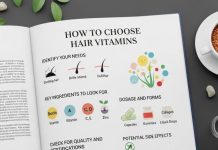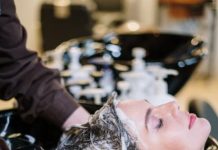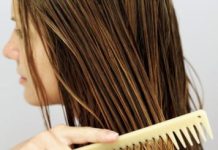A journey to healthy hair begins with understanding the importance of vitamin B complex and taking proactive steps towards its incorporation into your daily routine.
As someone who has struggled with lackluster hair for years, I can confidently say that the key to unlocking its true potential lies in the power of vitamin B complex. In this article, I will share my personal journey and shed light on the importance of incorporating vitamin B complex into your hair care routine.
Table of Contents
Understanding the Importance of Vitamin B Complex for Hair Growth and Health
For the longest time, I tried countless hair products and treatments in search of a solution for my dull and lifeless hair. It wasn’t until I stumbled upon the incredible benefits of vitamin B complex that I realized I had been missing a crucial element in my hair care regimen. Intrigued by the promising research, I decided to give it a try, and the results were truly transformative.
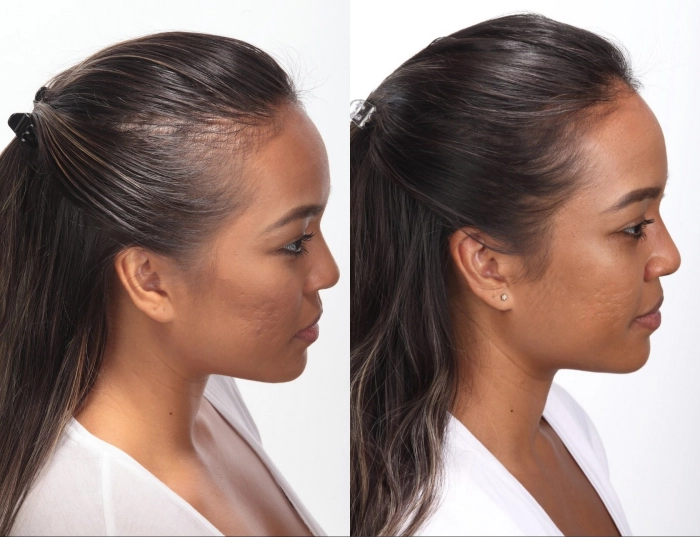
One of the key reasons why vitamin B complex is essential for hair health is its ability to nourish the scalp. The B vitamins, such as biotin, niacin, and pantothenic acid, work together to promote a healthy scalp environment.
By improving blood circulation and enhancing the delivery of oxygen and nutrients to the hair follicles, vitamin B complex helps create an optimal foundation for hair growth.
Not only does vitamin B complex nurture the scalp, but it also plays a vital role in stimulating hair growth. Biotin, in particular, is renowned for its ability to strengthen hair follicles and promote their growth phase.
With consistent use of vitamin B complex, I noticed a significant reduction in hair shedding and an increase in the overall thickness of my hair.
Key Questions about Vitamin B Complex and Hair Answered by Experts
Before I start writing on the topic of vitamin B complex and their effect on hair growth and health, I will first give proven answers to key questions.
These are questions for which it is not easy to find accurate and unambiguous answers on the Internet. The reason for this is that experts do not usually write blogs, but work in their offices directly with people who need help.
The answers we give here are the result of scientific research work as well as daily work with people who have had and successfully solved hair problems.
Vitamin B Complex offers numerous benefits for hair growth and thickness. It promotes healthy blood circulation to the scalp, nourishes hair follicles, strengthens hair strands, and encourages the production of new hair cells. Additionally, it helps prevent hair loss, adds volume, and improves overall hair health.
Vitamin B Complex promotes hair growth and thickness by providing essential nutrients that support the hair’s health. It stimulates the production of red blood cells, which carry oxygen and nutrients to the hair follicles. This enhances the hair’s growth phase and encourages the development of stronger, thicker hair strands.
The timeline for seeing results from taking Vitamin B Complex can vary depending on individual factors, such as overall health and specific hair concerns. Generally, it is recommended to take Vitamin B Complex consistently for at least several weeks to a few months to notice visible improvements in hair growth and thickness. However, it’s important to note that individual responses may vary, and it’s best to consult with a healthcare professional for personalized advice.
When taken within the recommended dosage, Vitamin B Complex is generally considered safe and beneficial for overall health. However, it’s important to follow the suggested guidelines and not exceed the recommended dosage. High doses of specific B vitamins, such as B3 (niacin), can cause temporary side effects like flushing or digestive discomfort. As with any supplement, it is advisable to consult with a healthcare professional before starting any new regimen, especially if you have pre-existing health conditions or are taking medications.
Vitamin B Complex can be obtained from various food sources. Some of the best sources include whole grains (such as brown rice and oats), legumes (such as lentils and chickpeas), lean meats (such as poultry and fish), dairy products (such as milk and yogurt), eggs, leafy green vegetables (such as spinach and kale), nuts (such as almonds and peanuts), and seeds (such as flaxseeds and sunflower seeds). Incorporating a diverse range of these foods into your diet can help ensure an adequate intake of Vitamin B Complex.
There are several ways to incorporate Vitamin B Complex into your hair care routine. Firstly, you can consume foods rich in B vitamins, such as whole grains, eggs, nuts, and leafy greens. Alternatively, you can take B Complex supplements after consulting with a healthcare professional. Additionally, using hair care products that contain Vitamin B Complex can provide direct nourishment to your hair and scalp.
The Science Behind Vitamin B Complex and its Impact on Hair Health
When it comes to understanding the impact of Vitamin B Complex on hair health, delving into the scientific aspects can provide valuable insights.

Let’s explore the research and uncover the mechanisms through which Vitamin B Complex influences our hair.
- The Role of B Vitamins in Hair Growth: Scientific studies have highlighted the importance of specific B vitamins, such as biotin (B7), niacin (B3), and pantothenic acid (B5), in promoting hair growth. These vitamins play crucial roles in cellular metabolism, energy production, and protein synthesis, all of which are essential for maintaining healthy hair follicles.
- Biotin and Hair Strength: Biotin, in particular, has gained significant attention for its role in strengthening hair strands. Research suggests that biotin improves the infrastructure of keratin, a protein that constitutes the hair shaft. By enhancing keratin’s structural integrity, biotin reduces hair breakage and brittleness, leading to stronger and more resilient hair.
- Niacin and Scalp Circulation: Niacin, also known as vitamin B3, has been found to improve blood circulation in the scalp. Enhanced circulation ensures that hair follicles receive an adequate supply of nutrients and oxygen, promoting a healthy scalp environment for optimal hair growth. Moreover, niacin’s vasodilatory properties can potentially contribute to increased hair thickness.
- Pantothenic Acid and Hair Moisture: Pantothenic acid, or vitamin B5, plays a crucial role in maintaining hair moisture. It is involved in the production of coenzyme A, which is necessary for sebum production—a natural oil that moisturizes the scalp and hair. Adequate levels of pantothenic acid help prevent dryness and support overall hair health.
- Synergistic Effects of B Vitamins: While individual B vitamins offer specific benefits for hair health, their combined effects within the Vitamin B Complex are believed to be synergistic. Together, they work in harmony to nourish the scalp, support healthy hair follicles, and enhance the overall quality of the hair.
What Are B Vitamins and B Vitamin Complex Supplements?
Most of the time people talk about B vitamins as a singular whole. We now know that B vitamins are eight different chemicals we need in small amounts to have healthy normal body function from top to bottom.
Vitamins are chemicals that are needed in incredibly small amounts, but that cause significant problems if you develop a deficiency.
Some vitamins, like B7 (Biotin) and vitamin D are produced in some amount by the body.
Other vitamins are only available in food. These are called essential vitamins since your body does not produce them in any amount and you must include them in your diet.
Vitamin C is a good example of an essential vitamin, humans, along with all the great apes and most mammals, cannot produce vitamin C.
Most vitamins exist naturally in your food, with some foods providing more of certain vitamins than others. When people talk about ‘empty’ foods or ‘junk’ foods, they are typically referring to food that has high-calorie counts with few vitamins or other necessary nutrients.
In the other direction, you have ‘super’ foods and ‘health’ foods, which are typically higher in vitamins and nutrients and lower in calories.
All eight B vitamins can be found in food, and most people get plenty of each simply by eating a healthy balanced diet.
The B Vitamins and the Foods that Provide Them
Thiamine, B1
Sunflower seeds, rice, low-fat pork, green pea, peanuts…
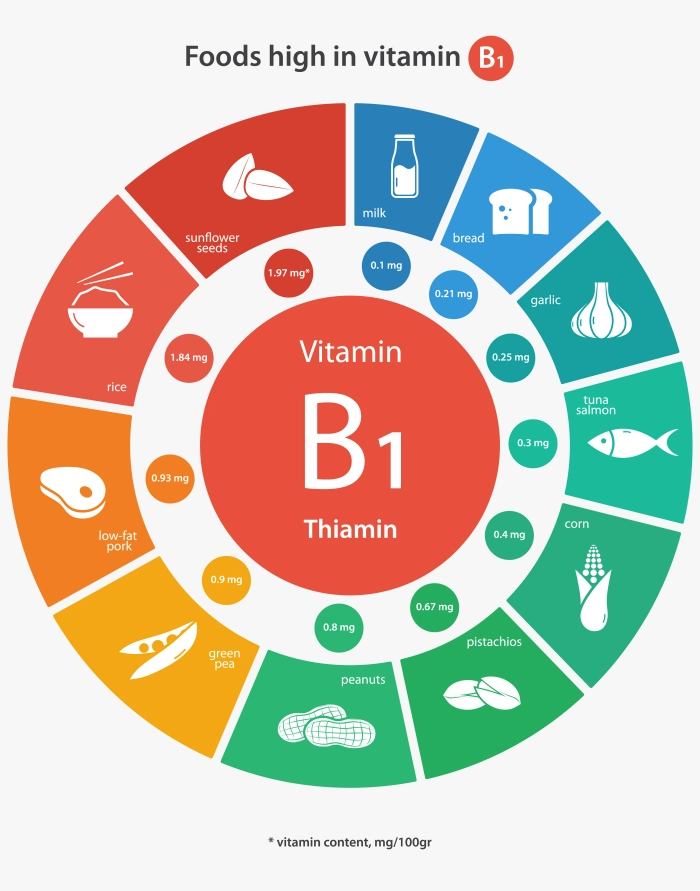
Riboflavin, B2
Calf liver, almond, mushrooms, red pepper, green pea…
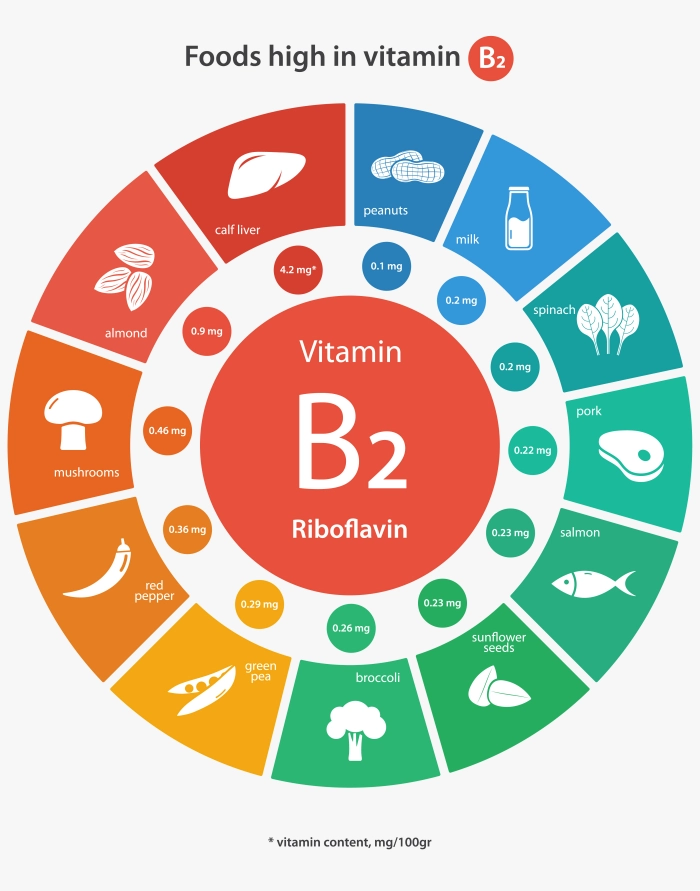
Niacin, B3
Peanut butter, liver, tuna, chicken breast, beef…
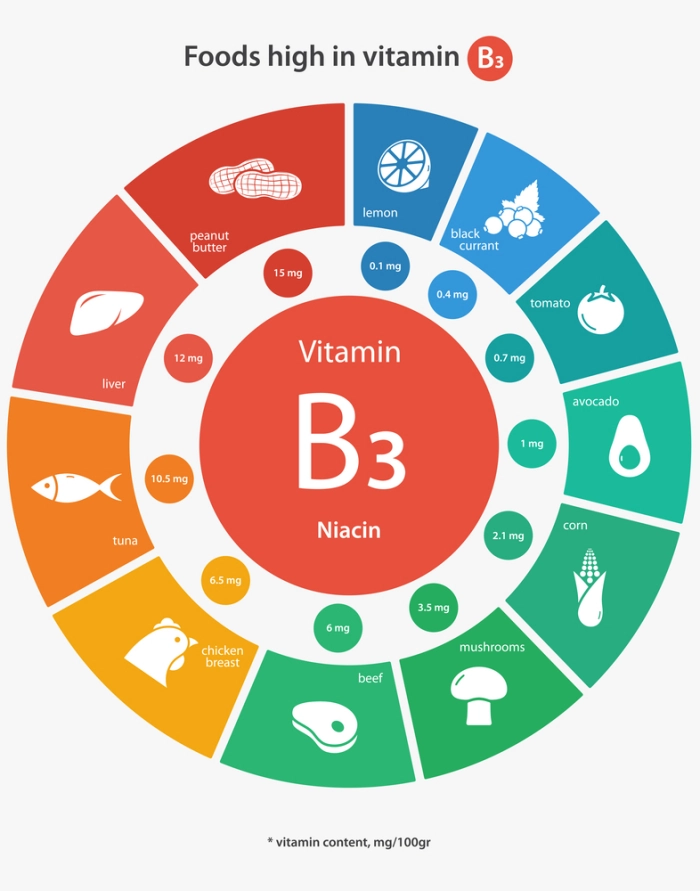
Pantothenic Acid, B5
Rice, pork liver, peanuts, calf liver, turkey…
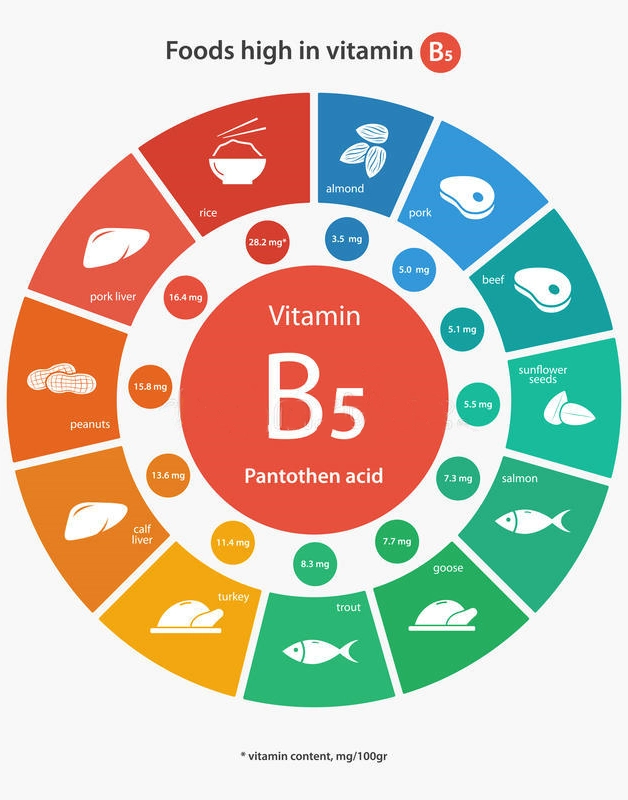
Pyridoxine, B6
Pistachios, sunflower seeds, garlic, tuna, beef liver…
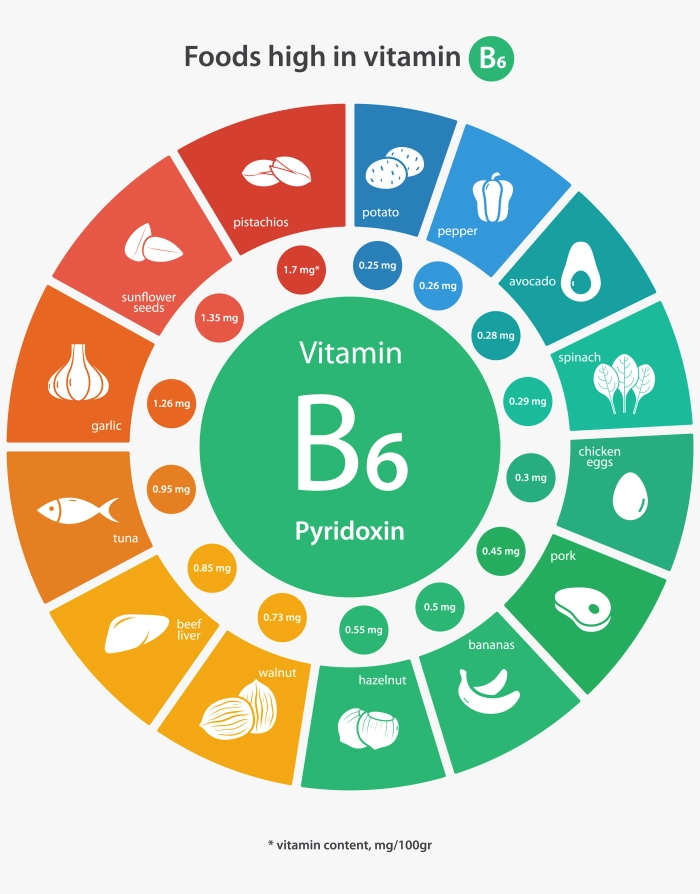
Biotin, B7
Liver, rice, egg yolk, walnut, peanut butter…
You also naturally synthesize some Biotin in your intestines as a normal part of digestion.
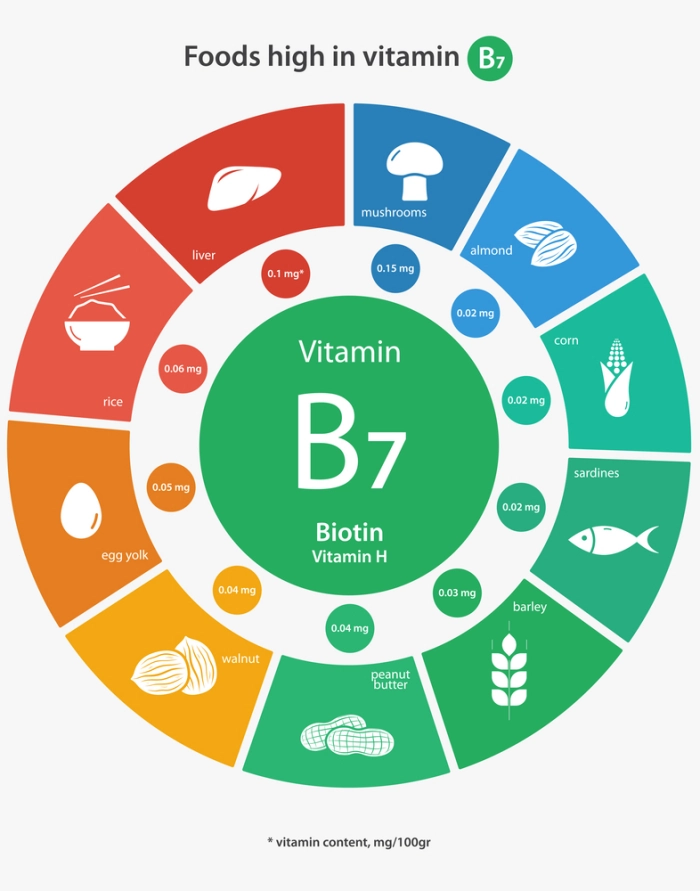
Folic Acid (folate), B9
Wheat germs, liver, beans, spinach, walnut…
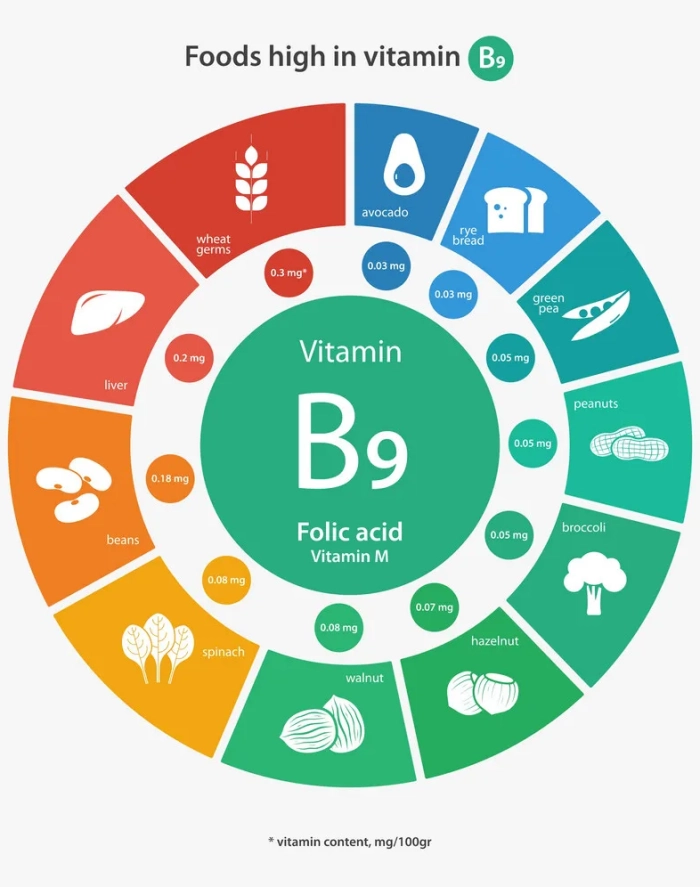
Cobalamin, B12
Clams, beef liver, oysters,sardines, trout…
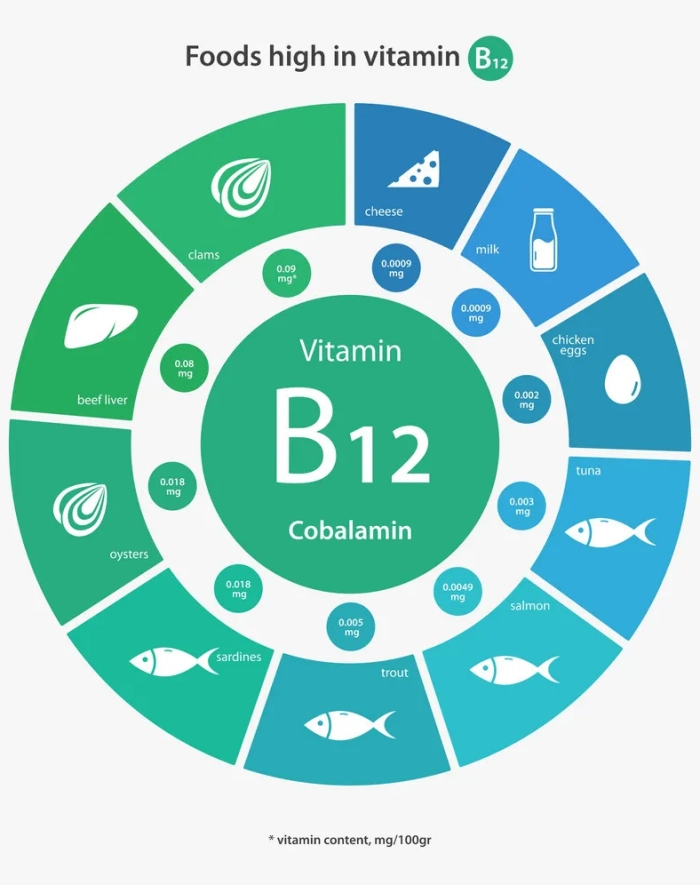
This is not the complete list of foods that provide these vitamins, but it’s a starting place for each of them.
Vitamin B Complex Supplements for Hair Growth
Like most supplements, B vitamin supplements tend to provide far more of each B vitamin than your body needs at any one time.
One way you can tell if your vitamin supplement is going overboard for your individual needs is in the toilet. B vitamins tend to turn urine bright yellow. Think sunflower yellow.
Part of the reason B vitamins change urine’s color is that they are water-soluble, making them easy for your body to filter out. There also isn’t much reason for your body to hold on to extra B vitamins, unlike some others, since it’s highly bio-available in a healthy diet.
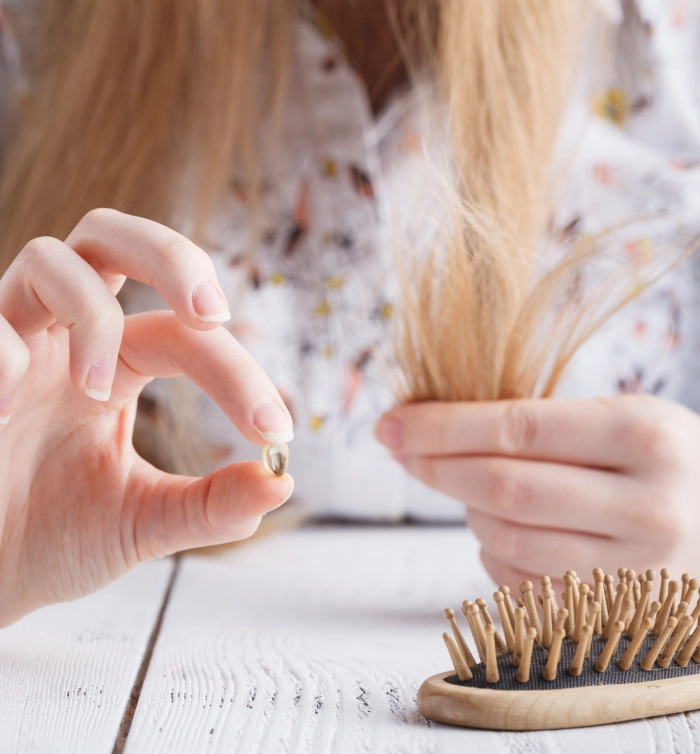
However, it’s also important to note that the recommended daily intake of every vitamin, not just B vitamins, is designed around the absolute minimum required to avoid negative health consequences. Having more of some vitamins is not necessarily a bad thing.
B vitamins being water-soluble also means it’s very difficult to reach toxic concentrations due to supplementation, making B vitamin supplements very safe.
That doesn’t mean B vitamins can’t concentrate to the point of toxicity, even water is toxic in high enough concentrations, it’s just more difficult.
Three of the B vitamins are more likely to reach toxic concentrations than the others, Niacin, Folic Acid, and Pyridoxin (B6), so you need to be more careful with those three.
B vitamin supplements come in two general categories, individual vitamin supplements, and B-complex supplements.
Individual Supplements
Individual supplements are usually labeled with the chemical name for the vitamin, Biotin is a common B vitamin to see in an individual supplement since it’s the most directly connected to skin, hair, and nail health.
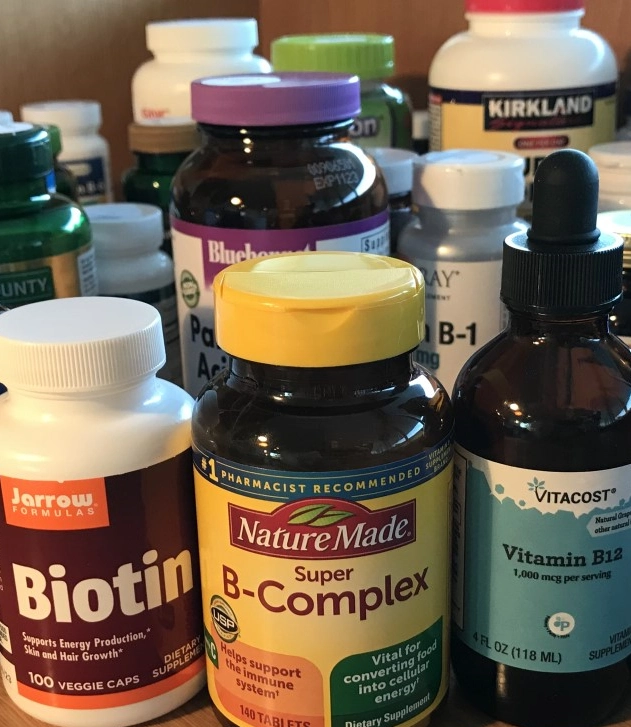
You might also find B 12 in an individual supplement, and it defies the rule about individual B vitamins going by their chemical names since B 12 is more recognizable than Cobalamin.
Niacin and Riboflavin can also usually be found in individual supplement form, as can Folic Acid (often labeled folate). The others are usually only found in B complex supplements.
We’ll talk about what each of the B vitamins does in a minute, first let’s talk about the complex supplements.
Complex Supplements
B vitamin complex supplements tend to be clearly labeled, either as B-Complex or simply Vitamin B.
Generally speaking, B vitamin complexes are considered more effective than the individual supplements outside of very specific circumstances. They are also usually easier to find.
The reason B complexes are considered more effective is that each of the B vitamins works best in combination with the others. They’re also a good option if you have been tested deficient in any one B vitamin since there is a lot of overlap between dietary sources for B vitamins, so if you’re deficient in one it’s likely your deficient in some or all of the others.
If you take a multivitamin, you’re likely getting some amount of the B vitamins in with the multi. Multivitamins usually contain a slightly less concentrated version of a B vitamin complex, along with other vitamins like vitamin C and D.
The Role of Vitamin B Complex in Promoting Hair Growth
All of the B vitamins are critical for good health, but each individual chemical has a different purpose in the body.
Thiamine, B1, helps support the brain and nervous system, primarily by helping your body turn carbs into usable, bio-accessible energy. The mitochondria are the powerhouse of the cell, and so on.
Riboflavin, B2, also helps support your nervous system, as well as being important for red blood cell health, and eye health. It also helps break down protein.
Niacin, B3, helps fight free radicals and is also involved in creating bio-accessible energy from food.
Pantothenic Acid, B5, is most critical in the production of coenzyme A. Coenzyme A is important in many essential reactions for supporting life, so a B5 deficiency can have a cascade effect on other systems and overall health.
Pyridoxine, B6, is part of hemoglobin production. Hemoglobin is the molecule that carries oxygen through our blood. It also has a role to play in breaking down carbs, like several of the other B vitamins.
Biotin, B7, helps break down all three critical nutrient types, carbs, fats, and protein. You likely only get a very small amount of B7 from your food, but since you synthesize it yourself you don’t need as much in your diet.
Folic Acid, B9, is usually referred to as a pre-natal vitamin since it’s important for pregnant women to help in fetal development and plays a role in preventing birth defects. Its also used to aid red blood cell production.
Cobalamin, B12, is another vitamin that helps support your nervous system as a whole. It also plays a role in red blood cell production, and the creation of bio-available energy in your cells, like the other B vitamins.
As you can see, all vitamins support general health, and many of them help create energy for all of your cells, while some specialize in specific cell types as well.
How Vitamin B Complex Nourishes and Strengthens Your Hair
Natural beauty is doubtlessly connected to your general health and the way you feel and live. Vitamins can affect the general health of your body – and hereby also your hair.
Blood and Oxygen
Many of the B vitamins are important for red blood cell production and hemoglobin production. One factor we know is important in hair loss is good circulation. That’s why massaging your scalp can help stimulate hair growth, the massage draws more circulation to the area, increasing nutrient and oxygen availability.

It makes sense, then, that taking supplements that support healthy red blood cells, which promote oxygen transfer, would improve the health of your hair follicles. Healthy hair follicles are more likely to stay in the active growth phase, anagen, for longer.
Interestingly enough, Rogaine, one of the only FDA approved over-the-counter treatments for hair loss, is a vasodilator, meaning it also aids in circulation and opening the capillaries in your scalp for better blood flow.
Energy Production
Another common feature of the B vitamins is that they aid in breaking down food into bio-accessible energy, ATP.
All cells need ATP to function. Your body does store energy for later use if it has a surplus, but efficient processing of energy into ATP is critical for almost all aspects of your health.

If your body is struggling to produce ATP it will prioritize critical systems, your brain, nervous system, and internal organs. It does the same thing when trying to conserve heat, prioritizing blood flow to the most important systems and away from less important cells like hair and skin.
So, similar to how B vitamins help hair by making sure there is plenty of oxygen going to your hair follicles and scalp, they can also help by making sure the mitochondria in your hair follicle cells are getting what they need to produce ATP.
Other Possibilities
Biotin, which has been linked to hair and skin health before, is also showing some promising results in recent studies on nail health.
Hair and nails are made from incredibly similar substances and through a similar process. It’s possible that Biotin is more directly involved in hair, skin, and nail production and health than is currently known.
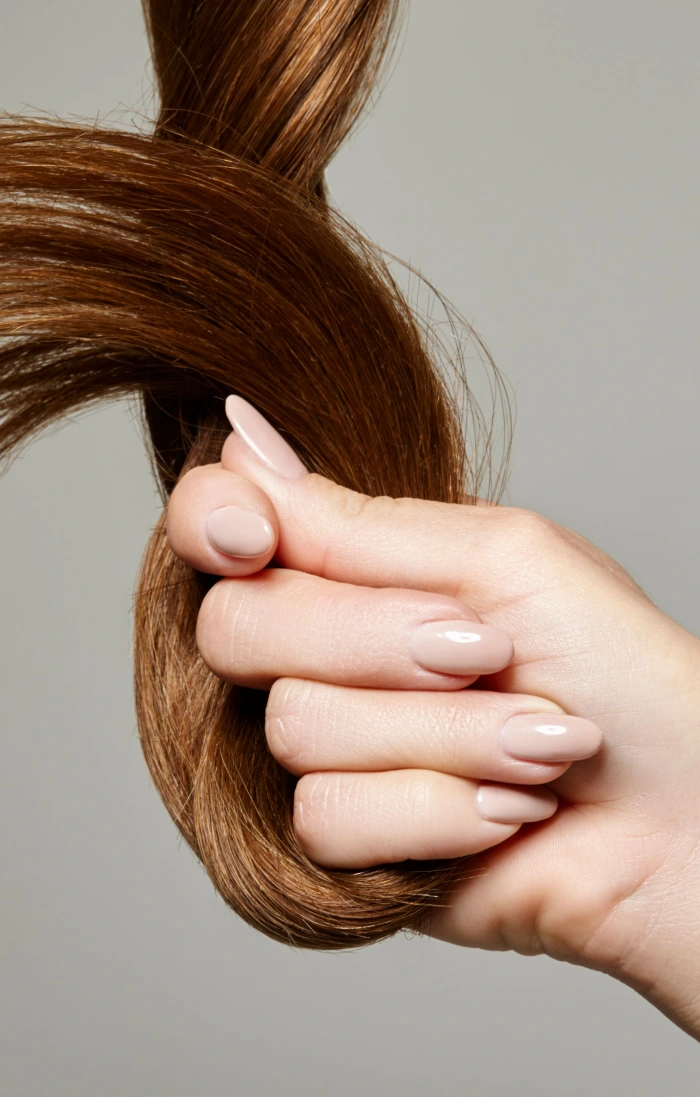
Free radicals damage any cells they come into contact with, and hair follicle cells and the hair cells themselves, are no exception to that.
Niacin may help with overall cell health by reducing the number of free radicals moving through the body at any given time.
Potential Side Effects and Precautions of Using Vitamin B Complex for Hair
You have a Family History of Vitamin B Deficiency
Like anything, there are heritable disorders that make it harder for your body to process vitamin B, or that can interfere with your body’s production of Biotin.

If you have family members with a known vitamin B deficiency it may be worth it to preemptively take a vitamin B complex supplement to prevent hair damage and the other health consequences that come along with those deficiencies.
Especially since any damage to your hair follicles is hard to come back from, your hair will thank you for being proactive about protecting it in this situation.
You Eat Lots of Egg Whites
Egg whites contain some compounds that bind to B vitamins, reducing their bio-availability and reducing the amount of benefit you can receive from B vitamins in your food.
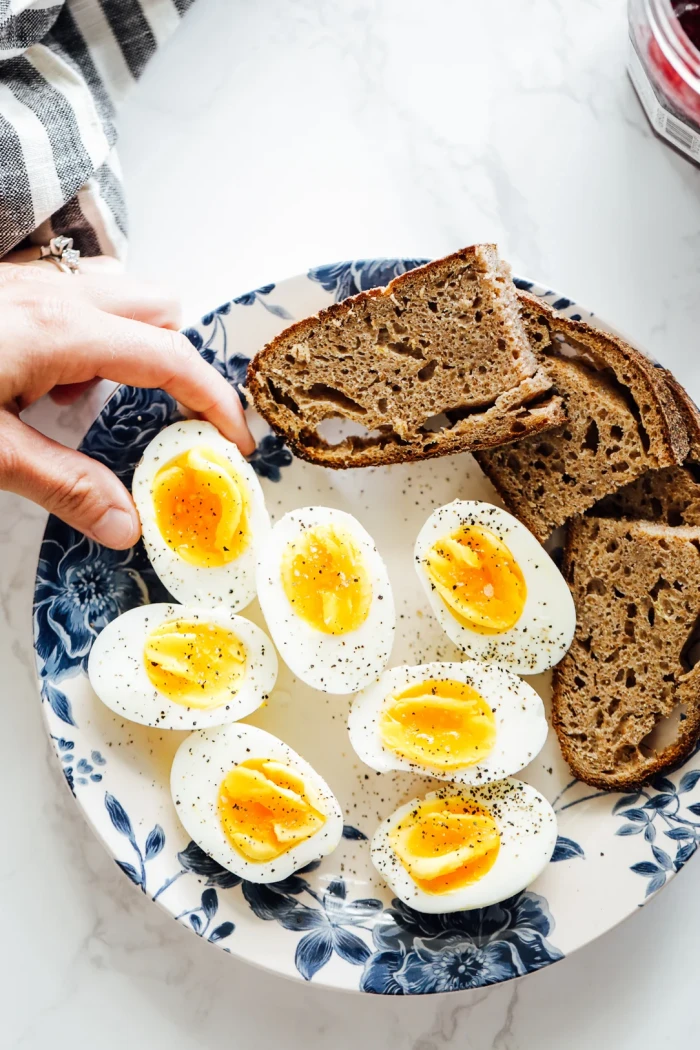
Egg yolks counteract the effect, but if you eat egg whites for health reasons or personal preference, you may notice your hair starting to go lackluster and patchy.
Especially if you’re already experiencing negative effects on your hair, it’s time to start supplementing B vitamins back in so that your body has a chance to use them before the egg whites prevent absorption.
You are Vegetarian or Vegan
You may have noticed in the list of vitamins and their food sources that animal protein tends to be a good source of most B vitamins.
Animal protein can be one of the primary ways to get dietary B vitamins, especially in American diets. You don’t even need to be truly vegetarian or vegan to be affected, if you avoid red meat you’ll have a hard time getting some of the B vitamins in the amount you need too.
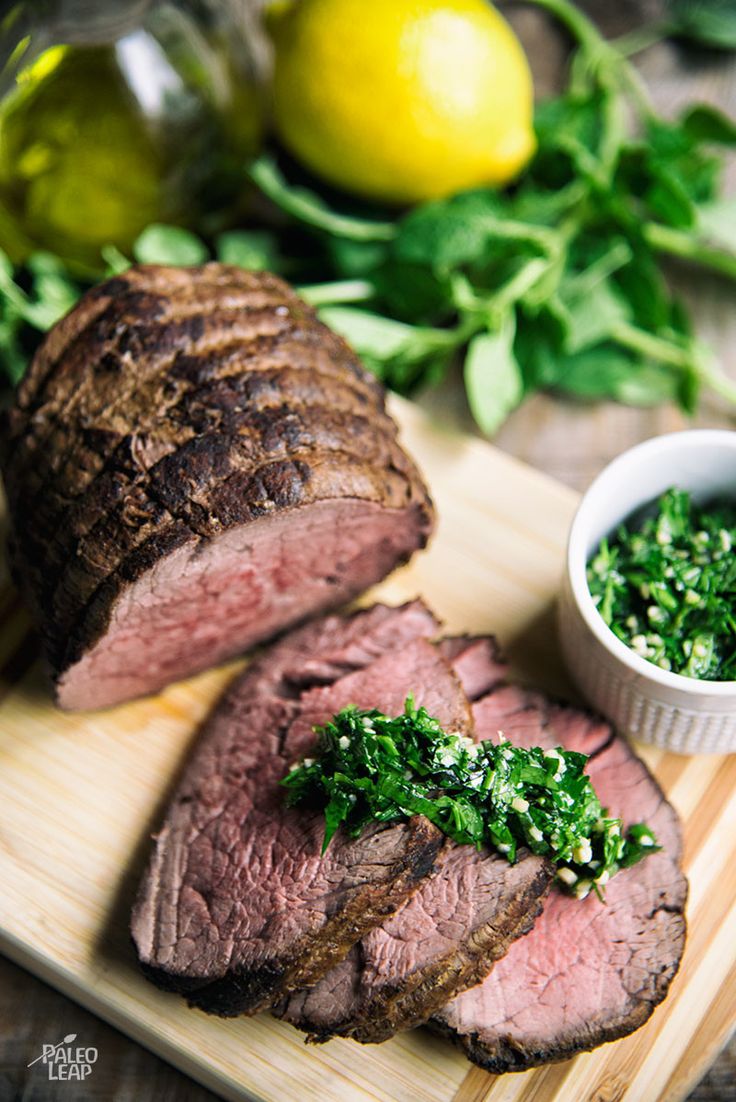
Sure, some of them, like Folic Acid, are readily available in vegetables and grains, but many of them aren’t. Or, if they are present, they may not be in a bio-accessible form that your body can get to easily.
Vitamin B 12, in particular, is difficult if not impossible to get enough of on a strict vegetarian or vegan diet.
And since the B vitamins tend to work in concert with one another, just supplementing B 12 may not be enough to get the full benefit. Especially if you already suspect that your skin and hair are starting to suffer from a B 12 dietary deficiency, it’s a good idea to add a B vitamin complex instead of an individual supplement.
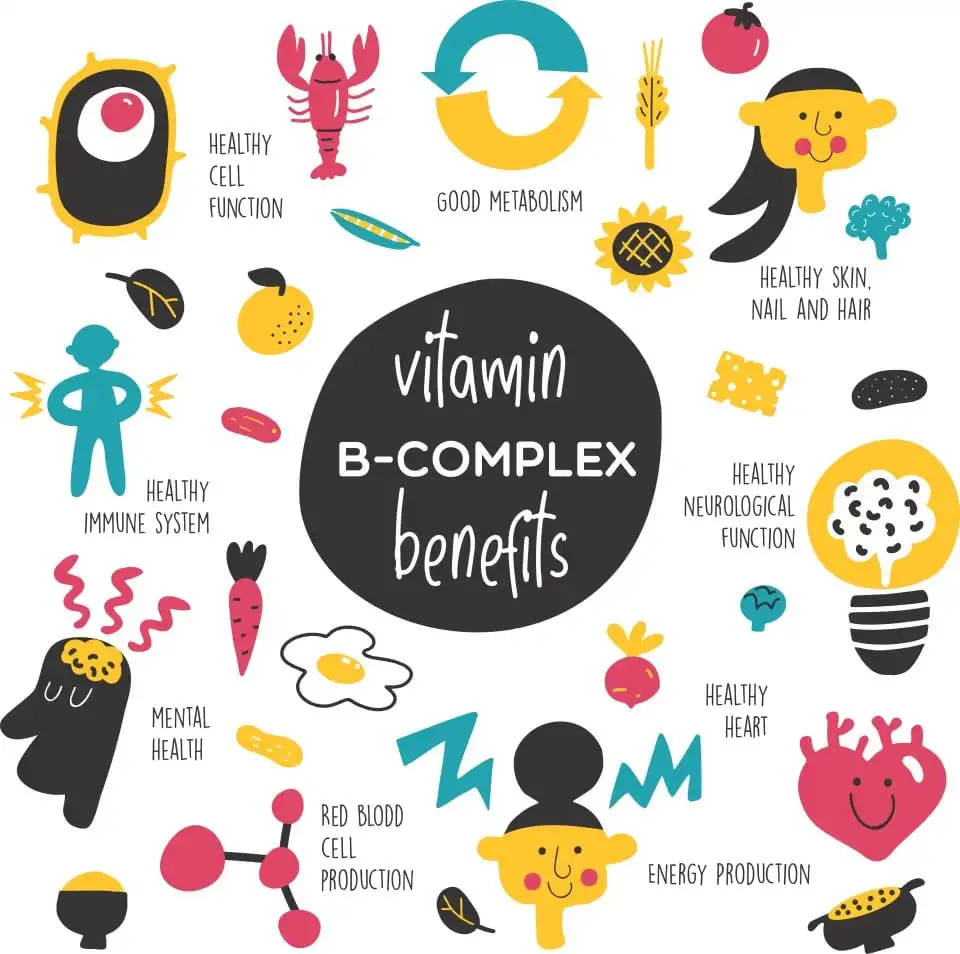
A complex will make sure you have the other B vitamins available in your body at the same time you have the B 12. Since these are water-soluble vitamins it’s important not only that you have enough, but that you have enough of them at the same time to get the best results.
You’re Concerned You Don’t Eat Enough in Your Normal Diet
Vegetarians and vegans aren’t the only ones who have to worry about getting B vitamins in their diet. If you eat a lot of processed foods, eat everything cooked without raw vegetables or fruits, or are on a highly restricted-calorie diet, you should probably consider taking a B complex vitamin for your hair and your health in general.
This is because B vitamins have to be taken in every day. The majority of the B complex vitamins are essential, meaning that your only source is your food. Since your body quickly processes B vitamins out of your system, you need to make sure you get some every day to make them available for the critical processes they contribute to.

Cooking changes the chemical makeup of food and can reduce concentrations of certain B vitamins, and highly restricted diets usually don’t give you the opportunity to get the full complement of dietary vitamins you need.
Highly processed foods can be nutritionally complete, especially if they are fortified with vitamins the way foods marketed to children often are, but they aren’t always. The broke college student all-ramen diet, for instance, is highly unlikely to be nutritionally complete, so supplementing is a good idea.
Generally, it’s better to get your vitamins from your diet and not through supplementation. Doing so is easier on your digestion, and is typically a more bio-available version of each vitamin, but if that isn’t possible, supplements are a good stopgap.
Expert Advice: Tips from Dermatologists and Trichologists on Using Vitamin B Complex for Hair
When it comes to incorporating Vitamin B Complex into your hair care routine, it’s essential to seek guidance from experts in the field. Dermatologists and trichologists, specialists in hair and scalp health, can provide valuable insights and tips on using Vitamin B Complex effectively. Let’s explore their expert advice:
- Consult a Professional: Before starting any new supplements or making significant changes to your hair care routine, it’s advisable to consult a dermatologist or trichologist. They can assess your specific hair concerns, conduct necessary tests, and provide personalized recommendations based on your individual needs.
- Choose the Right B Vitamin Supplement: Not all Vitamin B Complex supplements are created equal. Experts suggest selecting a high-quality supplement that contains all essential B vitamins, including biotin (B7), niacin (B3), pantothenic acid (B5), and others. Look for reputable brands with third-party testing and certifications to ensure product quality and potency.
- Determine the Optimal Dosage: The appropriate dosage of Vitamin B Complex for hair health can vary from person to person. Dermatologists and trichologists can help determine the right dosage based on your specific hair condition, health history, and nutritional needs. It’s important to follow their recommended dosage guidelines for optimal results.
- Be Consistent with Usage: Consistency is key when it comes to seeing the benefits of Vitamin B Complex for hair. Experts recommend taking the supplement daily as instructed by your healthcare professional. It may take several weeks or even months to notice significant improvements, so patience and consistency are vital.
- Combine with a Balanced Diet: While supplements can provide a convenient way to boost your B vitamin intake, experts emphasize the importance of a well-rounded, nutrient-rich diet for overall hair health. Combine your Vitamin B Complex supplementation with a balanced diet that includes a variety of fruits, vegetables, lean proteins, and whole grains.
- Consider Topical B Vitamin Products: In addition to oral supplements, there are topical products available that contain B vitamins specifically formulated for hair health. Dermatologists and trichologists may recommend certain shampoos, conditioners, or serums that can deliver B vitamins directly to the scalp and hair follicles for enhanced nourishment.
- Maintain a Holistic Approach to Hair Care: While Vitamin B Complex can have positive effects on hair health, it’s important to adopt a holistic approach to hair care. Experts stress the significance of a healthy lifestyle, including stress management, regular exercise, and avoiding harmful hair practices, such as excessive heat styling and harsh chemical treatments.
By following the expert advice of dermatologists and trichologists, you can harness the potential of Vitamin B Complex for your hair’s health and vitality. Their guidance ensures that you approach hair care in a well-informed and tailored manner, leading to the best possible outcomes for your individual hair goals.
Conclusion
B vitamins can help your hair grow thicker. Not only can taking a B vitamin complex help more of your hair follicles actively grow hair, but the hair strands themselves are also usually thicker.
The combination of more hair and thicker individual strands is fuller, more voluminous hair.
B vitamin complexes can also add that healthy glow to your hair. This is distinct from greasy-shiny hair, although you will notice that your hair is shinier in addition to being thicker.
You’ll likely notice that your natural hair color comes through more strongly as well. This can mean a brighter blond, a richer brunette, a more vibrant red. Whatever your natural color, your hair will appear to be a more saturated version.
It will also be healthier in general. You’ll notice less breakage and fewer split ends as your hair follicles and scalp get healthier over time.
It will take some patience to see results. Anything you do to boost hair health will take an average of 3-6 months to really have an effect because it takes that long for your hair follicles to move between active and dormant growth phases.


